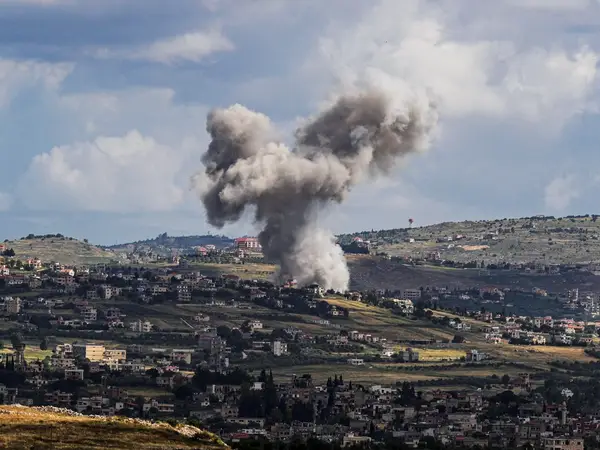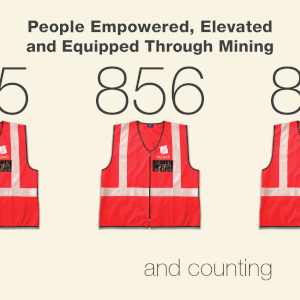Mirna Fahmy – Diplomatic Inside
Lebanon has been put on the line of destruction and unsettledness because of Hezbollah’s since the Israeli-Hamas’s war.
Since the Israeli-Hamas war erupted after the October 7 attack, Hezbollah, the Iranian Islamist group that controls most of South Lebanon, has been attacking Israel regularly, backing up Hamas’s attack in Gaza. Israel is fighting on both sides, creating a defence barrier in its north part and conducting many military ground operations in Gaza in its south region to free the hostages and eradicate the tunnels.
Hezbollah’s attack is crystal clear: to weaken and scatter the power of the Israeli Defence Forces (IDF) so that it would break down the country’s strengthened forces from many sides, especially in its war against Hamas.
Tel Aviv’s war sirens haven’t seen a stop for a single moment in a day since the beginning of the war because of the flood of strikes from Hezbollah. As usual, Israel won’t sit still waiting for any of its citizens to get wounded or killed and do anything.
Since October 8, Hezbollah has fired more than 5,000 rockets, anti-tank missiles, and explosive UAVs at Israeli civilian and military targets. In response, Israel has struck at least 4,500 Hezbollah targets in both Lebanon and Syria, killing more than 300 Hezbollah members, including some senior commanders. On the Israeli side, ten civilians and up to 18 IDF soldiers and reservists have been killed by Hezbollah, in addition to the hundreds killed by Hamas.
At least 60,000 Israelis have been evacuated from the northern border since October 8 due to the Hezbollah threat. More than 2,700 acres, much of them forest preserves, have been burned as Hezbollah rockets spark fires in the north. On Lebanon’s southern border with Israel, the authorities have evacuated more than 90,000 people, according to the International Organisation for Migration.
On June 3, forests around the town of Kiryat Shmona in northern Israel blazed after a shower of rockets launched by Hezbollah in southern Lebanon. The fire burned 3,500 acres of land, killing nature, especially when forests act as shields in tackling global warming, which the entire planet is suffering from.
The last forest fire has put the Israeli leaders at wits end, igniting them to take concrete actions to settle everything with Hezbollah, resulting in a war declaration.
Hearing that, Beirut’s airport has been packed like sardines, with crowds fearing the war that might flare up between Israel and Hezbollah at any time. The Switzerland of the Middle East is doomed to not see a blissful day since the day of their civil war.
Fear shrouded more because it was announced by Ghassan Hasbani, the former deputy prime minister and an MP for the Lebanese Forces party, that Hezbollah’s control of the airport has long been a concern for Lebanon, and more so now if it increasingly becomes a potential military target in the conflict with Israel.
“The Israeli army is capable of destroying Hezbollah’s military capabilities within days,” National Unity Party leader and former War Minister Benny Gantz said on Tuesday, June 25, 2024, at a press conference.
“We can plunge Lebanon completely into darkness and dismantle Hezbollah’s power within days,” he said in response to Hezbollah’s threat of cutting electricity power in Israel.
Gantz has assured that the most challenging side of this war is returning the people to their homes in the northern region of the country, starting on September 1.
“In the event of an all-out war, Hezbollah will be destroyed and Lebanon will be subjected to severe blows,” Israeli Foreign Minister Yisrael Katz confirmed.
“Israel will pay a price on the internal and external fronts, but with a strong and united nation, and with the full strength of the IDF, we will restore security to the residents of the north.”
Hezbollah represents the most armed non-governmental entity in the world, according to Foreign Policy magazine. The magazine indicated that Hezbollah has built an advanced arsenal of weapons with the help of Iran, Russia, and Syria.
Hezbollah possesses about 130,000 missiles, capable of overwhelming Israeli air defence systems and striking its largest city, the Centre for International and Strategic Studies estimated.
“I read horrific estimates of what Hezbollah could do to Israel within three days,” Michael Oren, who served as Israel’s ambassador to the United States during the Barack Obama administration, said, as quoted in Foreign Policy magazine. “We are talking here about the destruction of our basic infrastructure, oil refineries, air bases, and the Dimona nuclear site.”
Like Hamas, Hezbollah owns a network of tunnels under Lebanon, as the magazine mentioned. Hezbollah’s issues are intricate because, unlike Gaza, which is geographically isolated from Iran, Tehran has established land and air supply routes to Lebanon via Iraq and Syria, which can be resorted to in the event of an all-out war. It is a very important point to mention that Hezbollah fighters have gained combat experience in Syria, and since 2006, it has rapidly developed its weapons arsenal.
An Israel-Hezbollah war could be “a catastrophe that goes far beyond the border and, frankly, beyond imagination,” U.N. Secretary-General Antonio Guterres warned last week, amid rising rhetoric and fears of a conflict.
Due to decades of corruption and sectarianism, the political and security situation in Lebanon is unstable and complex. Hezbollah has been involved in Lebanese politics since the early 1990s and has been represented in the Lebanese parliament since 1992 controlling many sectors in Lebanon. Hamas is a Palestinian Sunni Islamist political and military movement that has been known for years to be part of the Muslim Brotherhood. Hezbollah is Shia. Both Hamas and Hezbollah are supported firmly by Iran, and their aim against Israel is similar to bringing down the country. In recent years, several European countries have taken a stronger stance. The Parliament of the United Kingdom deemed all of Hezbollah a terrorist group in 2019, followed by the German government in 2020.
The Lebanese government resigned in October 2020, citing significant demonstrations and international pressure. Since then, the country has struggled to create a new administration, with numerous political forces competing for power and unable to reach an agreement on a new cabinet.
Lebanon remains without a properly functional government. Najib Mikati, the prime minister-designate, has been working to assemble a new government for several months. The lack of a government has exacerbated Lebanon’s already dismal economic condition, with the country experiencing significant shortages of basic products and services such as gasoline, power, and medical supplies. The continuous political crisis and economic collapse have sparked protests and social unrest in Lebanon, with many Lebanese demanding a change in the country’s political structure as well as the abolition of corruption and sectarianism.


